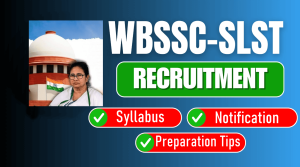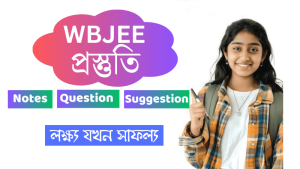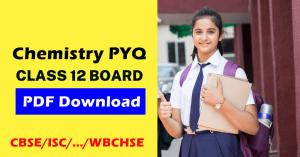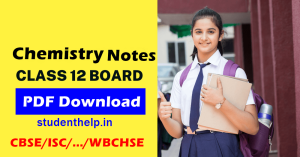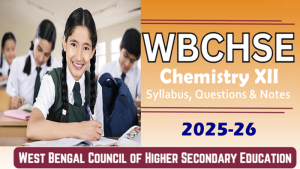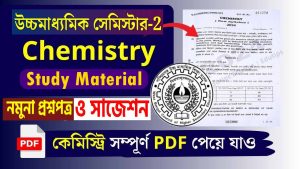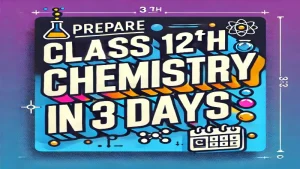CTET Syllabus with Exam Pattern PDF Download 2024-2025: Check the latest exam pattern and detailed syllabus for CTET Paper 1 and Paper 2.
The Central Board of Secondary Education (CBSE) is going to conduct the Central Teaching Eligibility Test (CTET) soon. The CTET will be conducted in two phases – Paper I and Paper II. CTET Paper I (Primary Stage) will be teaching Class I to V and CTET Paper II (Elementary Stage) will be teaching Class VI to VIII. Both Paper 1 and Paper 2 have Objective Multiple Choice Questions (MCQ) with negative mark.
- The CTET exam is conducted twice in a year.
- CTET qualified candidates get job in Government schools like Kendriya Vidyalaya, Jawahar Navodaya Vidyalaya & others.
| Organisation | Central Board of Secondary Education (CBSE) |
| Name of Examination | CTET 2021 Exam |
| Type of Exam | Eligibility Test |
| Duration of CTET Exam | 2.5 hours (for each paper) |
| Language of Exam | 20 languages |
| CTET 2021 Exam Date | December 2021/January 2022 |
| Maximum Marks | 150 marks (for each paper) |
| Category | CTET Syllabus & Exam Pattern |
| Type of Questions | Multiple Choice Questions |
| Mode of Exam | Offline |
| Marking Scheme | 1 mark for each correct answer |
| Negative Marking | No negative marking for wrong answers |
Languages of CTET Syllabus 2024
The CTET Exam will be held in the following Languages before we discuss CTET Syllabus 2021:
| English | Hindi | Sanskrit | Punjabi | Urdu |
| Bangla | Manipuri | Tamil | Marathi | Mizo |
| Nepali | Oriya | Khasi | Malayalam | Telugu |
| Tibetan | Garo | Assamese | Gujarati | Kanada |
The Syllabus of CTET 2022 and Exam Pattern of CTET Paper I & II are shared below
| Paper | Timing | Duration | Marks |
| Paper-I | 9.30 AM to 12.00 PM | 2.30 hours | 150 |
| Paper -II | 2.00 PM to 04.30 PM | 2.30 hours | 150 |
Check the complete list from here.
CTET Syllabus with Exam Pattern 2024 Paper 1
Paper I (for Classes I to V) Primary Stage: (Exam Duration – 2.5 hours)
| Subject | Number of Questions (MCQs) | Marks |
| Child Development and Pedagogy (Compulsory) | 30 | 30 |
| Language I (Compulsory) | 30 | 30 |
| Language II (Compulsory) | 30 | 30 |
| Mathematics | 30 | 30 |
| Environmental Studies | 30 | 30 |
| Total | 150 | 150 |
I. Child Development and Pedagogy – 30 Questions
(a) Child Development (Primary School Child) – 15 Questions
- Concept of development and its relationship with learning
- Principles of the development of children
- Influence of Heredity & Environment
- Socialization processes: Social world & children (Teacher, Parents, Peers)
- Piaget, Kohlberg and Vygotsky: constructs and critical perspectives
- Concepts of child-centered and progressive education
- Critical perspective of the construct of Intelligence
- Multi-Dimensional Intelligence
- Language & Thought
- Gender as a social construct; gender roles, gender-bias and educational practice
- Individual differences among learners, understanding differences based on diversity of language, caste, gender, community, religion etc.
- Distinction between Assessment for learning and assessment of learning;
- School-Based Assessment, Continuous & Comprehensive Evaluation: perspective and practice
- Formulating appropriate questions for assessing readiness levels of learners; for enhancing learning and critical thinking in the classroom and for assessing learner achievement.
(b) Concept of Inclusive education and understanding children with special needs – 5 Questions
- Addressing learners from diverse backgrounds including disadvantaged and deprived
- Addressing the needs of children with learning difficulties, ‘impairment’ etc.
- Addressing the Talented, Creative, Specially abled Learners
(c) Learning and Pedagogy – 5 Questions
- How children think and learn; how and why children ‘fail’ to achieve success in school performance.
- Basic processes of teaching and learning; children’s strategies of learning; learning as a social activity; social context of learning.
- Child as a problem solver and a ‘scientific investigator’
- Alternative conceptions of learning in children, understanding children’s ‘errors’ as significant steps in the learning process.
- Cognition & Emotions
- Motivation and learning
- Factors contributing to learning – personal & environmental
II. Language I – 30 Questions
(a) Language Comprehension – 15 Questions
Reading unseen passages – two passages one prose or drama and one poem with questions on comprehension, inference, grammar and verbal ability (Prose passage may be literary, scientific, narrative or discursive).
(b) Pedagogy of Language Development – 15 Questions
- Learning and acquisition
- Principles of language Teaching
- Role of listening and speaking; function of language and how children use it as a tool
- Critical perspective on the role of grammar in learning a language for communicating ideas verbally and in written form
- Challenges of teaching language in a diverse classroom; language difficulties, errors and disorders
- Language Skills
- Evaluating language comprehension and proficiency: speaking, listening, reading and writing
- Teaching- learning materials: Textbook, multi-media materials, multilingual resource of the classroom
- Remedial Teaching
III. Language – II – 30 Questions
(a) Comprehension – 15 Questions
Two unseen prose passages (discursive or literary or narrative or scientific) with question on comprehension, grammar and verbal ability.
(b) Pedagogy of Language Development -15 Questions
- Learning and acquisition
- Principles of language Teaching
- Role of listening and speaking; function of language and how children use it as a tool
- Critical perspective on the role of grammar in learning a language for communicating ideas verbally and in written form;
- Challenges of teaching language in a diverse classroom; language difficulties, errors and disorders
- Language Skills
- Evaluating language comprehension and proficiency: speaking, listening, reading and writing
- Teaching – learning materials: Textbook, multi-media materials, multilingual resource of the classroom
- Remedial Teaching
IV. Mathematics – 30 Questions
(a) Content – 15 Questions
- Geometry
- Shapes & Spatial Understanding
- Solids around Us
- Numbers
- Addition and Subtraction
- Multiplication
- Division
- Measurement
- Weight
- Time
- Volume
- Data Handling
- Patterns
- Money
(b) Pedagogical issues – 15 Questions
- Nature of Mathematics/Logical thinking; understanding children’s thinking and reasoning patterns and strategies of making meaning and learning
- Place of Mathematics in Curriculum
- Language of Mathematics
- Community Mathematics
- Evaluation through formal and informal methods
- Problems of Teaching
- Error analysis and related aspects of learning and teaching
- Diagnostic and Remedial Teaching
V. Environmental Studies – 30 Questions
(a) Content – 15 Questions
- i. Family and Friends: Relationships, Work and Play, Animals, Plants
- ii. Food
- iii. Shelter
- iv. Water
- v. Travel
- vi. Things We Make and Do
(b) Pedagogical Issues – 15 Questions
- Concept and scope of EVS
- Significance of EVS, integrated EVS
- Environmental Studies & Environmental Education
- Learning Principles
- Scope & relation to Science & Social Science
- Approaches of presenting concepts
- Activities
- Experimentation/Practical Work
- Discussion
- CCE
- Teaching material/Aids
- Problems
Download CTET Syllabus 2021 Paper I in PDF format
CTET Syllabus with Exam Pattern 2024 Paper 2
Paper II (for Classes VI to VIII) Elementary Stage: (Exam Duration – 2.5 hours) Paper II will be for candidates who intend to teach Classes VI to VIII. The CTET 2021 exam pattern for Paper-II is:
| Subject | Number of Questions (MCQs) | Marks |
| Child Development and Pedagogy (Compulsory) | 30 | 30 |
| Language I (Compulsory) | 30 | 30 |
| Language II (Compulsory) | 30 | 30 |
| Mathematics and Science(for Mathematics and Science teacher) | 60 | 60 |
| Social Studies/Social Science(for Social Studies/Social Science teacher) | 60 | 60 |
| Total | 150 | 150 |
| I. Child Development and Pedagogy 30 Questions (a) Child Development (Elementary School Child) – 15 Questions • Concept of development and its relationship with learning • Principles of the development of children • Influence of Heredity & Environment • Socialization processes: Social world & children (Teacher, Parents,Peers) • Piaget, Kohlberg and Vygotsky: constructs and critical perspectives • Concepts of child-centered and progressive education • Critical perspective of the construct of Intelligence • Multi-Dimensional Intelligence • Language & Thought • Gender as a social construct; gender roles, gender-bias and educational practice • Individual differences among learners, understanding differences based on diversity of language, caste, gender, community, religion etc. • Distinction between Assessment for learning and assessment of learning • School-Based Assessment, Continuous & Comprehensive Evaluation; • Formulating appropriate questions for assessing readiness levels of learners; for enhancing learning and critical thinking in the classroom and for assessing learner achievement. (b) Concept of Inclusive education and understanding children with special needs – 5 Questions • Addressing learners from diverse backgrounds including disadvantaged and deprived• Addressing the needs of children with learning difficulties, ‘impairment’ etc.• Addressing the Talented, Creative, Specially abled Learners (c) Learning and Pedagogy 10 Questions • How children think and learn; how and why children ‘fail’ to achieve success in school performance. • Basic processes of teaching and learning; children’s strategies of learning; learning as a social activity; social context of learning. • Child as a problem solver and a ‘scientific investigator’ • Alternative conceptions of learning in children, understanding children’s ‘errors’ as significant steps in the learning process. • Cognition & Emotions • Motivation and learning • Factors contributing to learning – personal & environmental |
| II. Language I – 30 Questions (a) Language Comprehension – 15 Questions Reading unseen passages – two passages one prose or drama and one poem with questions on comprehension, inference, grammar and verbal ability (Prose passage may be literary, scientific, narrative or discursive) (b) Pedagogy of Language Development – 15 Questions • Learning and acquisition • Principles of language Teaching • Role of listening and speaking; function of language and how children use it as a tool • Critical perspective on the role of grammar in learning a language for communicating ideas verbally and in written form; • Challenges of teaching language in a diverse classroom; language difficulties, errors and disorders • Language Skills • Evaluating language comprehension and proficiency: speaking, listening, reading and writing • Teaching- learning materials: Textbook, multi-media materials multilingual resource of the classroom • Remedial Teaching |
| III. Language II – 30 Questions (a) Comprehension – 15 Questions Two unseen prose passages (discursive or literary or narrative or scientific) with question on comprehension, grammar and verbal ability (b) Pedagogy of Language Development – 15 Questions • Learning and acquisition • Principles of language Teaching • Role of listening and speaking; function of language and how children use it as a tool • Critical perspective on the role of grammar in learning a language for communicating ideas verbally and in written form; • Challenges of teaching language in a diverse classroom; language difficulties, errors and disorders • Language Skills • Evaluating language comprehension and proficiency: speaking, listening, reading and writing • Teaching – learning materials: Textbook, multi-media materials, multilingual resource of the classroom • Remedial Teaching |
| IV. Mathematics and Science – 60 Questions (i) Mathematics – 30 Questions (a) Content 20 Questions• Number System • Knowing our Numbers • Playing with Numbers • Whole Numbers • Negative Numbers and Integers • Fractions • Algebra • Introduction to Algebra • Ratio and Proportion • Geometry • Basic geometrical ideas (2-D) • Understanding Elementary Shapes (2-D and 3-D) • Symmetry: (reflection) • Construction (using Straight edge Scale, protractor, compasses) • Mensuration • Data handling (b) Pedagogical issues – 10 Questions • Nature of Mathematics/Logical thinking • Place of Mathematics in Curriculum • Language of Mathematics • Community Mathematics • Evaluation • Remedial Teaching • Problem of Teaching (ii) Science – 30 Questions (a) Content – 20 Questions • Food• Sources of food • Components of food • Cleaning food • Materials • Materials of daily use • The World of the Living • Moving Things People and Ideas • How things work • Electric current and circuits • Magnets • Natural Phenomena • Natural Resources (b) Pedagogical issues – 10 Questions • Nature & Structure of Sciences • Natural Science/Aims & objectives • Understanding & Appreciating Science • Approaches/Integrated Approach • Observation/Experiment/Discovery (Method of Science) • Innovation • Text Material/Aids • Evaluation – cognitive/psychomotor/affective • Problems • Remedial Teaching |
Download CTET Syllabus 2021 Paper 2 in PDF format
CTET mock test will help you get an idea about the type and difficulty of questions asked in Paper 1. After taking the test you can also check your score and correct answers for all questions in the test. Attempt CTET Paper 1 mock test for free below.CTET Paper 1 Mock Test
CTET mock test will help you get an idea about the type and difficulty of questions asked in Paper 2. After taking the test you can also check your score and correct answers for all questions in the test. Attempt CTET Paper 2 mock test for free below.CTET Paper 2 Mock Test
CTET Syllabus FAQs
Q: What is the syllabus for the CTET exam?
A: The CTET exam syllabus comprises important topics from subjects of Paper 1 and Paper 2 including Child Development and Pedagogy, Language-I, Language-II, Mathematics, Environmental Studies, Science, and Social Studies/Social Sciences.
Q: Who prescribes the CTET syllabus?
A: The Central Board of Secondary Education prescribes the CTET syllabus.
Q: What is CTET Paper II Syllabus 2021 with Topic-wise Weightage?
